Now that Baron Beefy of Bothamshire has been sworn into the House of Lords and granted power of scrutiny over the nation’s legislation – where’s the third umpire when you need him? – it is clear that Joe Simmonds will soon be joining him on the woolsack. With an MBE in his pocket at 24, ennoblement cannot be far off.
We could spend the whole of 2021 wondering how and why Simmonds was awarded a gong ahead of his predecessor as Exeter‘s playmaker- in-chief, Gareth Steenson. It is perfectly reasonable to think that the Devonians would have claimed last season’s “double” without Simmonds.
It is barely possible to imagine anything of the sort without Steenson’s foundation-laying contribution.
As a matter of fact, the movers and shakers in the honours system are merely the latest to turn a blind eye to his virtues. The influence of the recently retired outside-half from Dungannon over a 12-year stretch at Sandy Park was so far off the scale, it was invisible to many of the game’s professional observers and chroniclers for longer than they would care to admit.
Back in the dim and distant – the end of the 2013-14 campaign, if memory serves – your columnist moved heaven and earth to persuade fellow judges that Steenson should win the “Premiership Player of the Year” award, on the not unreasonable basis that he had been the most consistent performer in the Premiership.
It wasn’t enough. Not even close. The prize went to Mike Brown of Harlequins, even though the full-back’s finest displays had been in England white rather than the pastel shades of his club. Brown was on a roll at international level and that was enough to swing the vote. Nowadays, it would be called populism.
One of Steenson’s problems in commanding the widespread recognition he warranted was his status as an uncapped No.10. We live in an age of celebrity, and there isn’t much celebrity available to those who, to use a Glastonbury Festival analogy, regularly play the house down in the “acoustic field” without ever setting foot on the “pyramid stage”.
It is in this spirit that we select a team of Premiership all-stars on whom the stardust never fell. Some called it a day without winning so much as a single full cap while others are still active but remain miles off Test selection, yet together, they not only helped create the culture and set the tone for their clubmates, but did more than most in defining the character of the league itself.
15. Phil Dollman
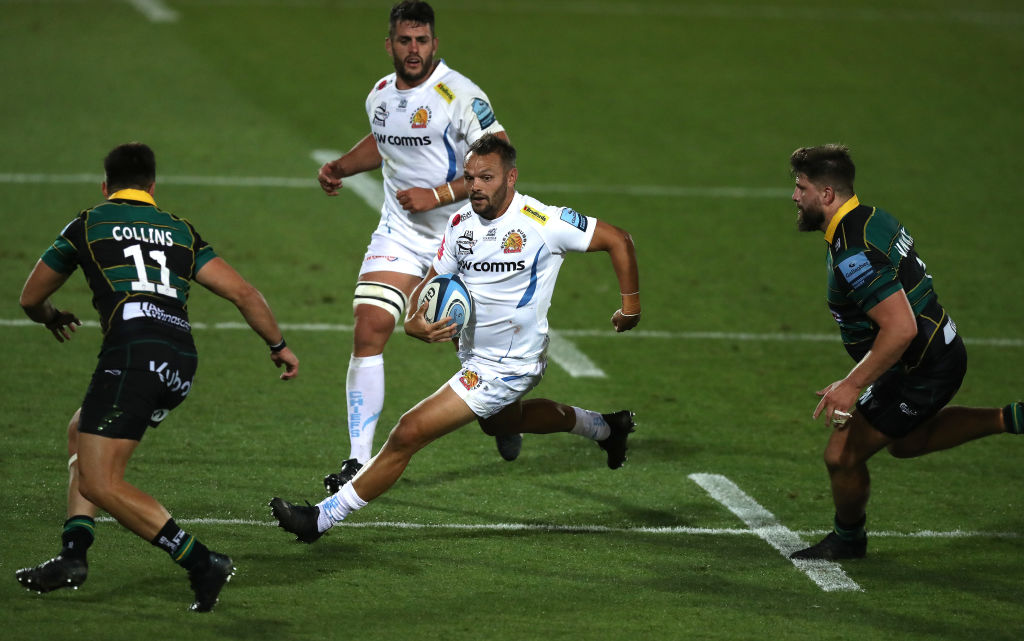
A late arrival in fulltime professional rugby, the Welshman was one of the “originals” who, with Steenson, propelled Exeter into the top flight and stayed for the long haul. A comfort blanket who protected the club from the worst effects of a hard landing in the Premiership.
14. Joe Maddock
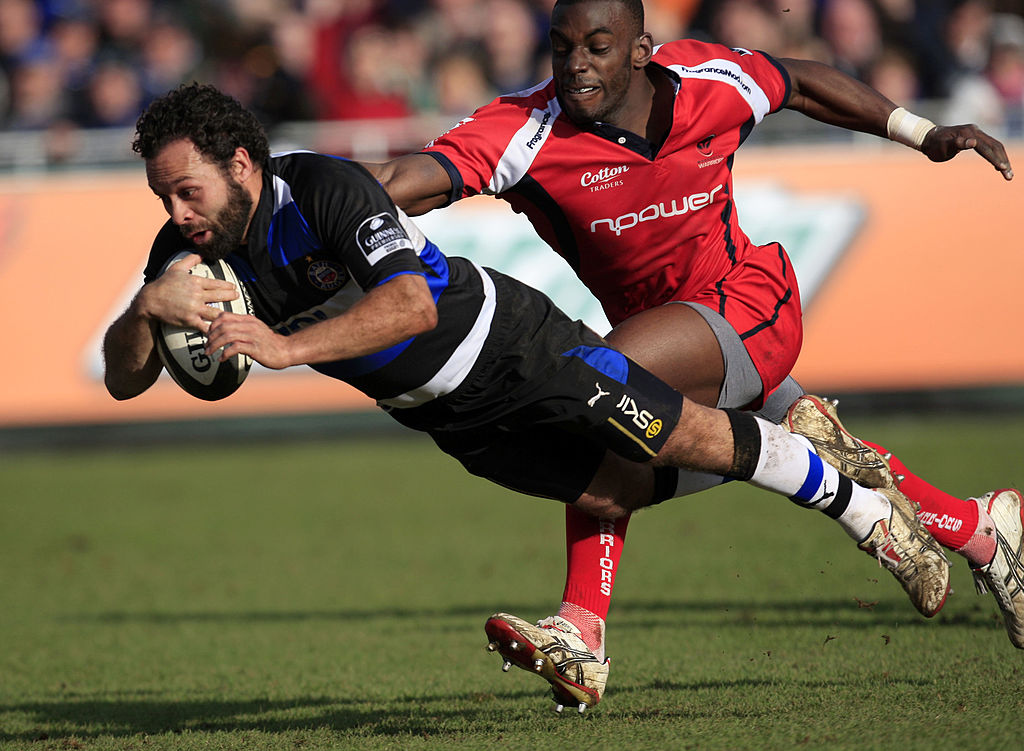
There were times when the error-free New Zealander was considered THE best player at Bath – and that was when Nick Abendanon, Olly Barkley, Butch James and Steve Borthwick were in the side. Signed from the Christchurchbased Crusaders in 2004, his know-how helped drive the West Countrymen to the European Challenge Cup four years later. They haven’t won a title since.
13. Kevin Sorrell
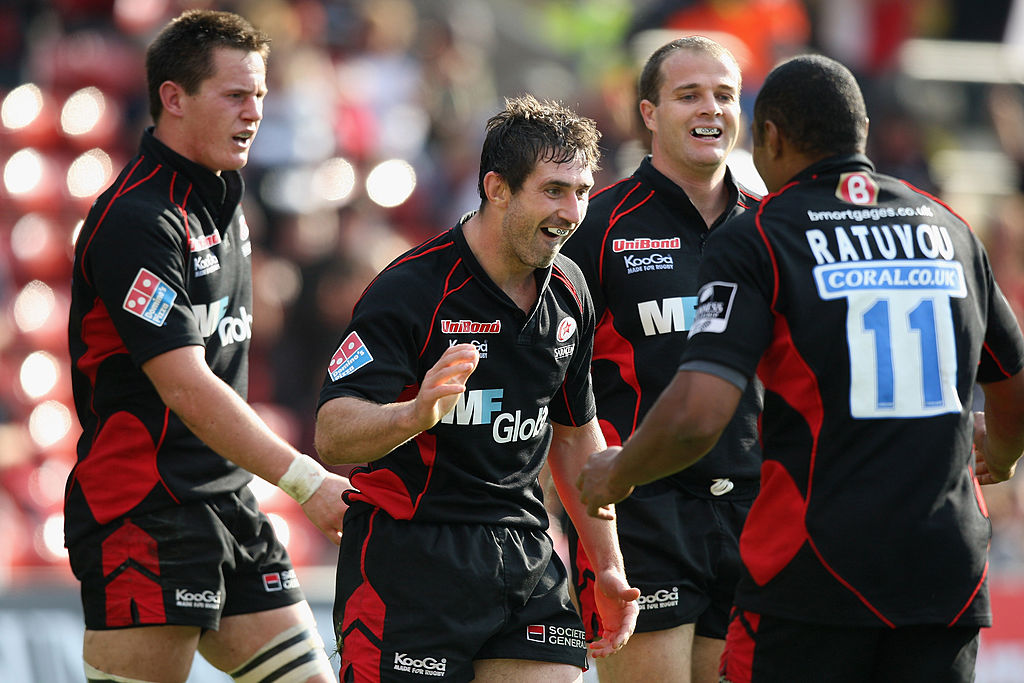
During their great years before “The Fall”, Saracens pieced together all-international back divisions as though they were shelling peas. It wasn’t always so easy. Over the course of more than 250 games, Sorrell was a fixed point in the team-building process: the cement between the bricks.
12. Jimmy Gopperth
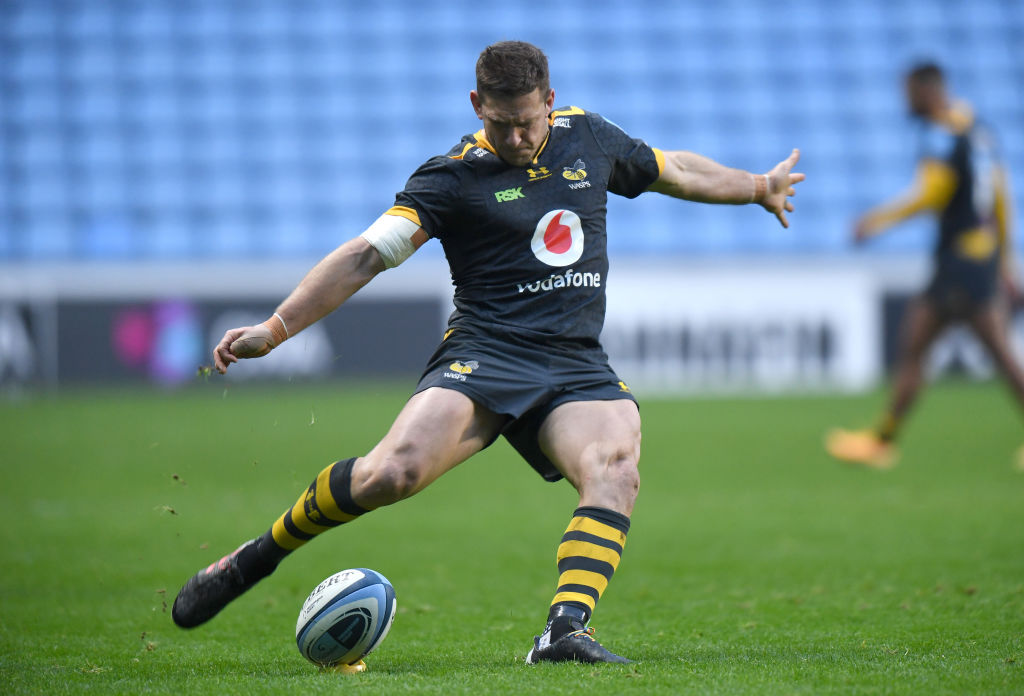
Another Kiwi blessed with the game understanding that runs through New Zealand rugby like a gold seam, Gopperth arrived at Newcastle from the North Island in 2009 and kept them in the Premiership well past their sell-by date. Now, at 37, he is helping Wasps recapture the boldness and brio of the Noughties. However brilliant their youngsters may be, they look more brilliant alongside the old bloke.
11 Josh Bassett
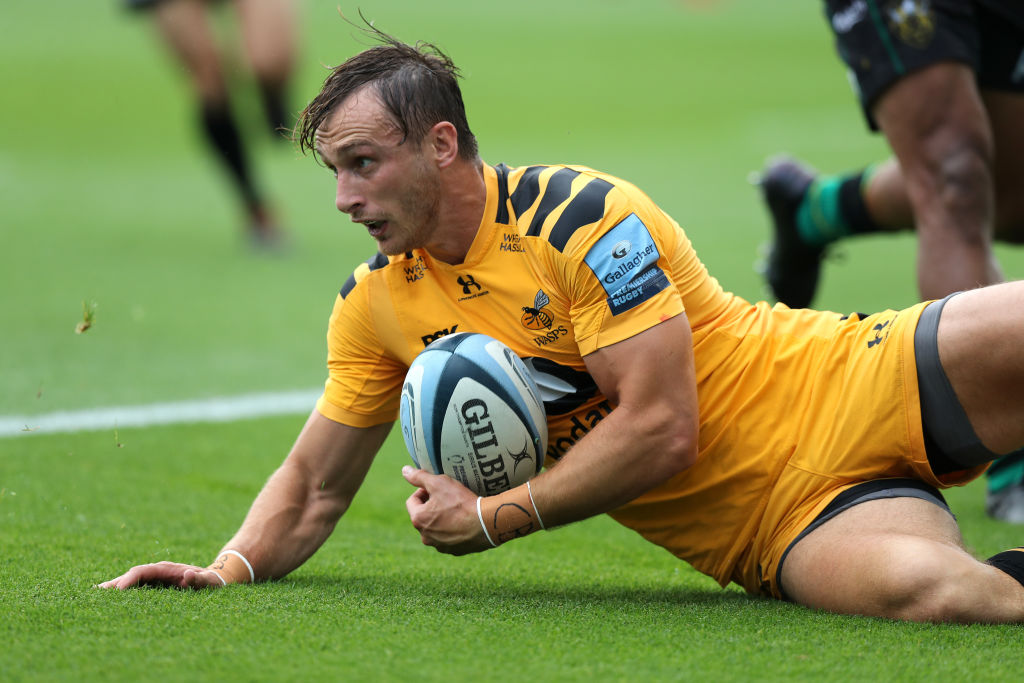
The definition of reliability in bad times, he is reaping his reward in the good ones. Those who ask the highly accomplished Wasps wing why he failed to “kick on” internationally after playing at the Junior World Cup in 2012 are questioning the wrong bloke. Better to interrogate the top-end coaches who remain blind to his gifts.
10. Gareth Steenson
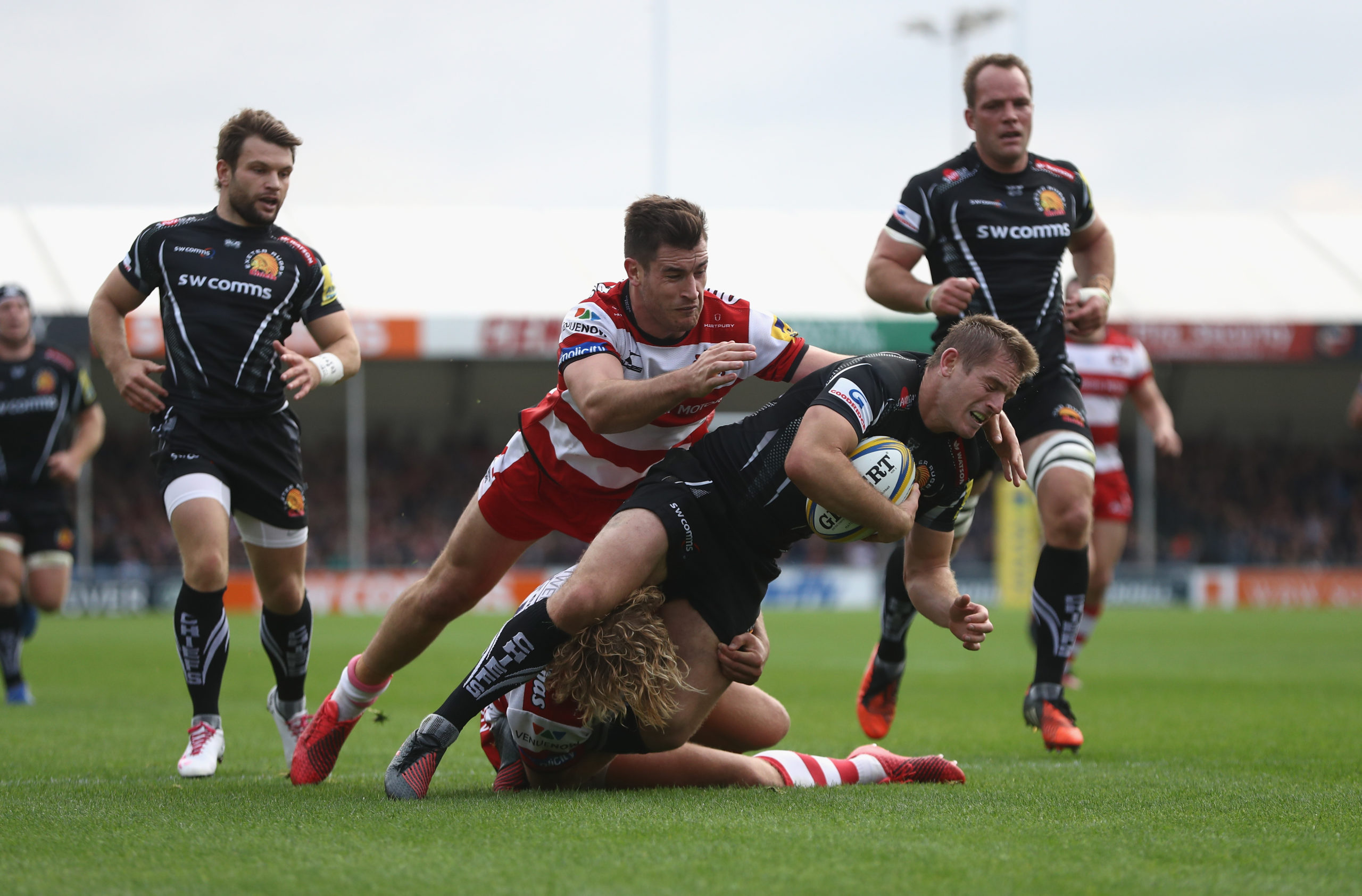
For those who still don’t get it, consider this: 311 appearances for Exeter, 2,630 points – 1,651 of them in the Premiership – and a leadership contribution of immeasurable magnitude. There were seasons when he played every minute of every game. The first name on the team sheet.
9. Kevin Putt
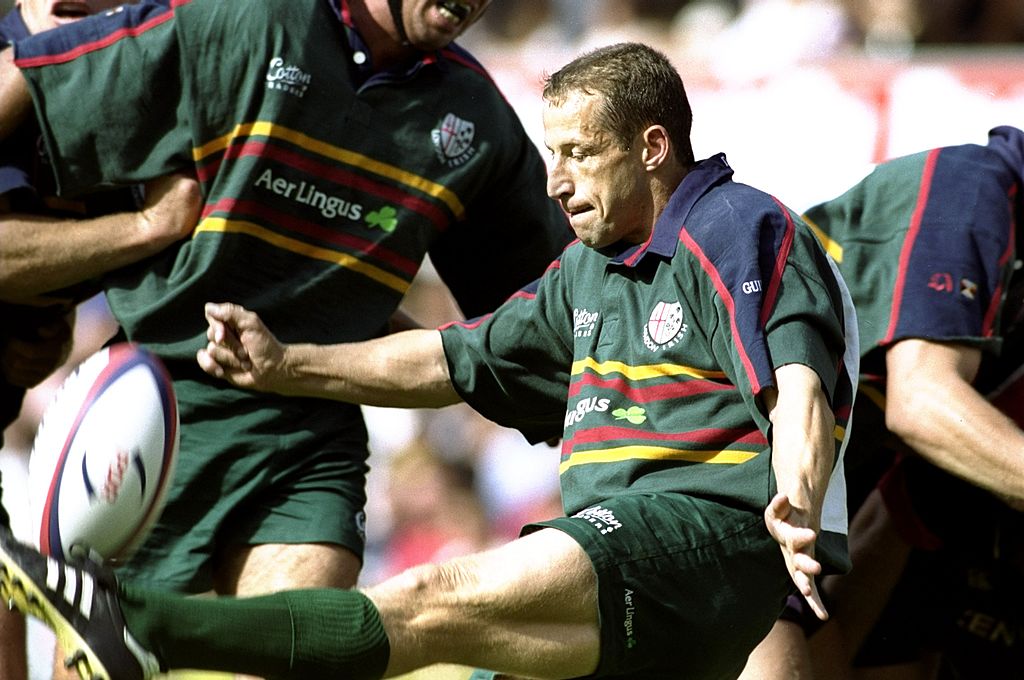
Little remembered now, but the New Zealander who went close to winning caps for the Springboks was the energiser-in-chief of an exciting London Irish side during the tournament’s early days, when the Exiles were coached by Dick Best and showing signs of becoming a serious force. He created a box-office buzz at a fragile point in Premiership history.
1. Alex Waller
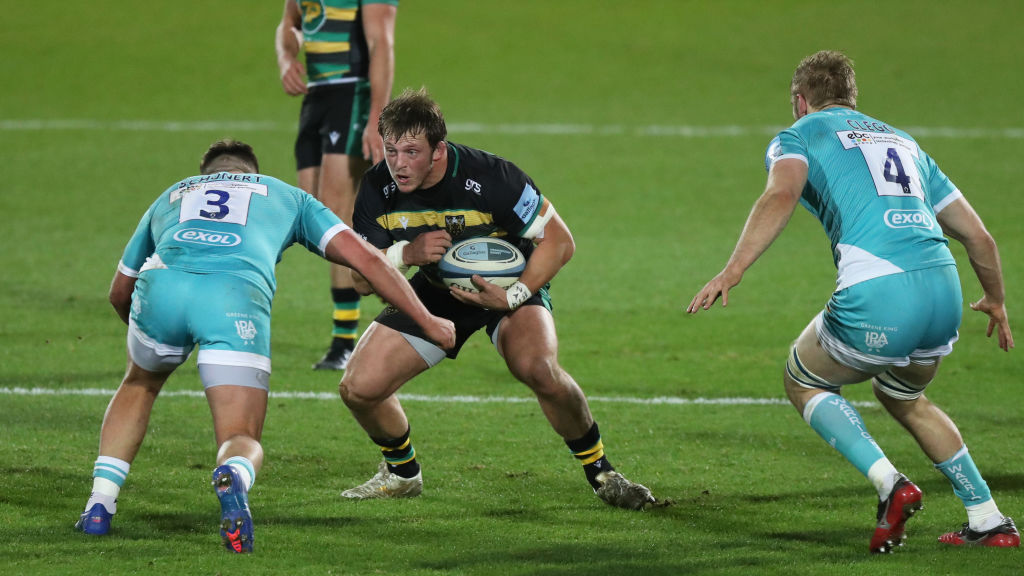
He may be annoying – that innocent- guilty smile of his is almost as maddening as Priti Patel’s smirk – but anyone who makes a front row debut in his teens, plays 150 consecutive league games, scores a Premiership-winning try in extra time and is the epitome of a oneclub loyalist has other things going for him. The pride of Northampton.
2. Jack Yeandle

There are international front rowers a-plenty at Exeter, but if the director of rugby Rob Baxter trusts anyone with his life – or, more importantly still, with his pint of cider – it is the undecorated hometown hooker. Hard, durable, dependable… and a captain into the bargain.
3. Petrus du Plessis
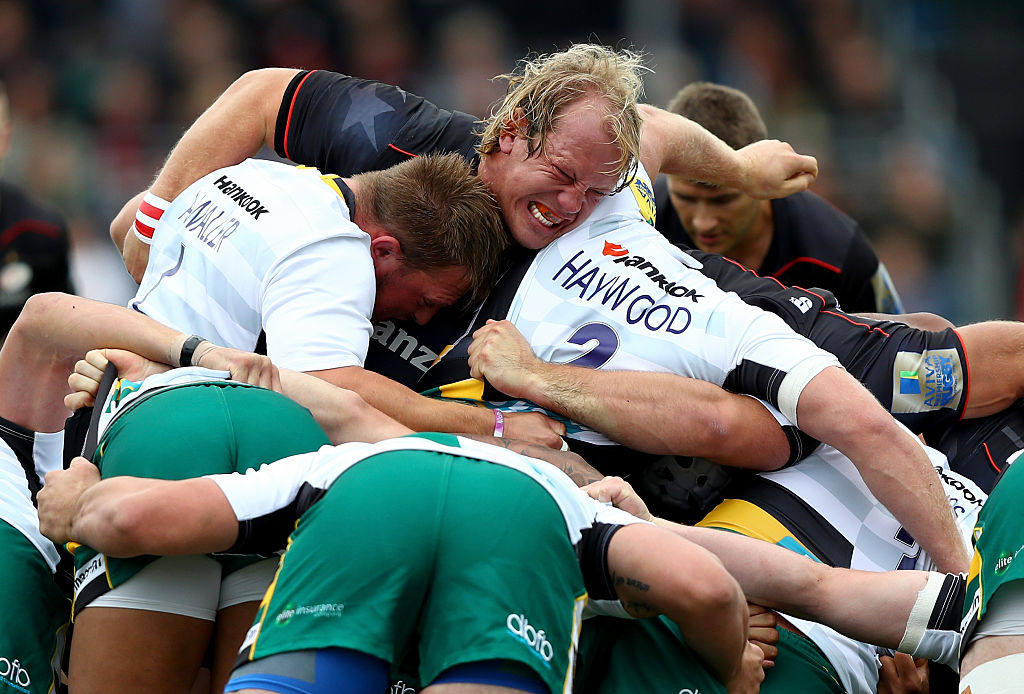
Here’s a question: did Petrus do more for Saracens than Saracens did for Petrus? A man of many talents outside of rugby – qualified physiotherapist, enthusiastic guitarist, an occasional actor who shares a film credit with Billy Bob Thornton and Amber Heard – his anchoring of the black-shirted scrum over seven trophy-laden seasons tells its own tale.
4. Stuart Hooper

While he was a kid at Saracens, no less a figure than Wayne Shelford identified him as a major influencer in the making. Stuart Lancaster agreed and made him captain at Leeds. Then came the Bath years, when he was the conscience of the team. Now, he’s running the whole show.
5. Ed Slater
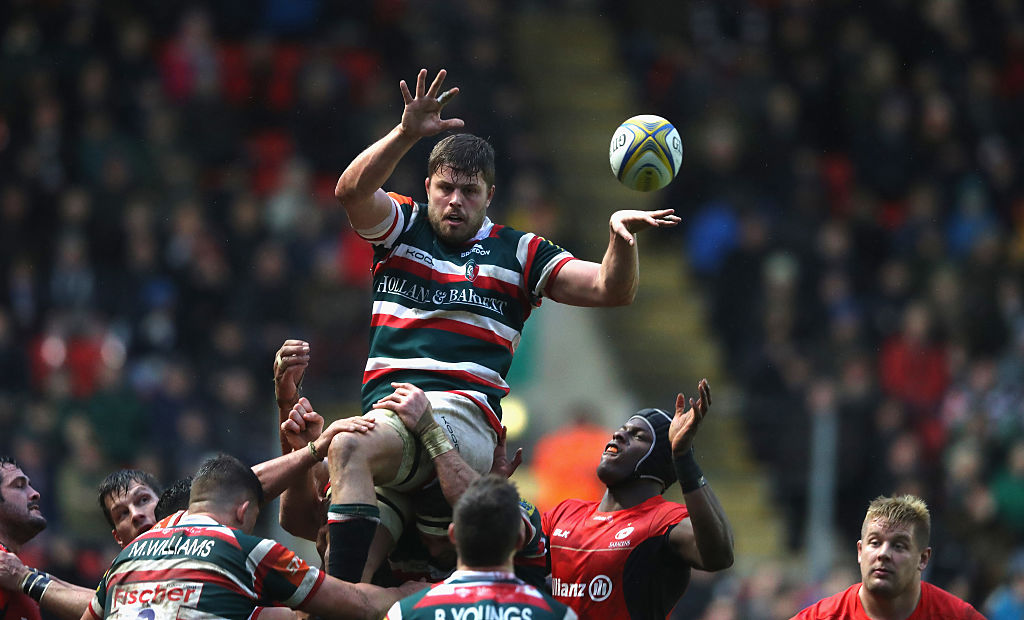
Richard Cockerill said it best. “There are two possible reasons to make someone skipper,” he remarked on handing Slater the reins at Leicester in 2014. “He’s either respected as the best player, or people are scared of him. With Ed, there was a bit of both in the decision.”
6. Dave Ewers
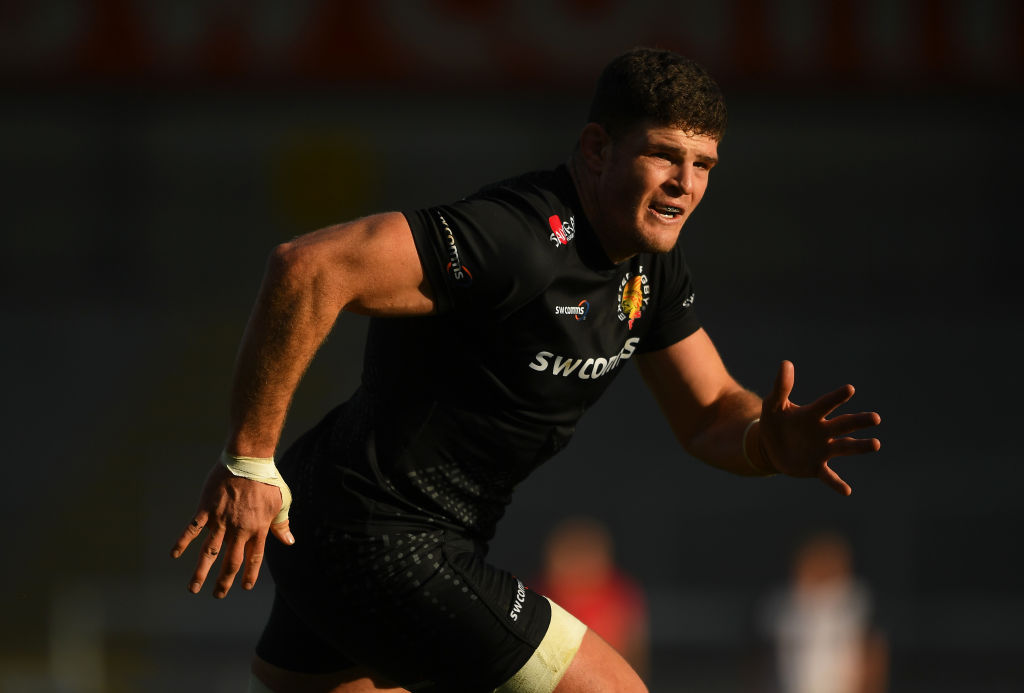
Anyone wishing to record the Zimbabwean’s vital statistics – rucks hit, metres carried, tackles made, momentum-changing interventions – will need a calculator the size of the Large Hadron Collider. Is it possible to set standards without saying a word? You bet it is. Even the dogs in the Exeter streets understand the importance of Ewers. Speaking of statistics and betting, always keep them in mind, be you a punter or not
7. Julian Salvi
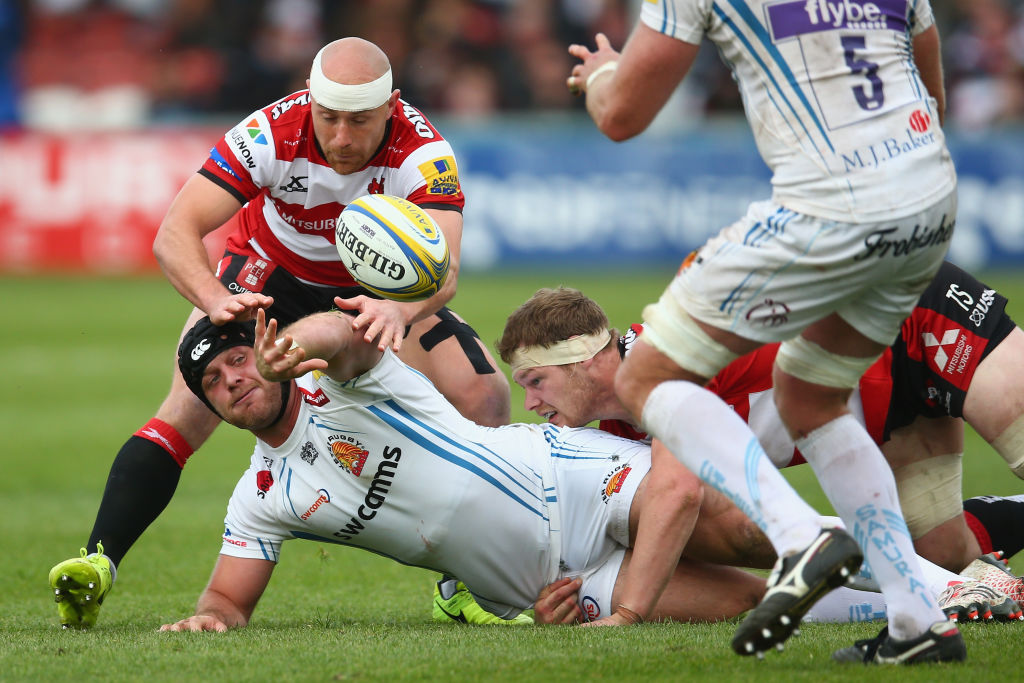
George Smith, David Pocock, Michael Hooper, Liam Gill…one way or another, the specialist scavenger from Canberra faced some quality opponents in the race for Wallaby honours. He found life a little easier up here in the frozen north, where he was frequently the best of the best first with Bath and then Leicester before taking his dark arts to Exeter, where he now coaches the defence.
8. Jackson Wray
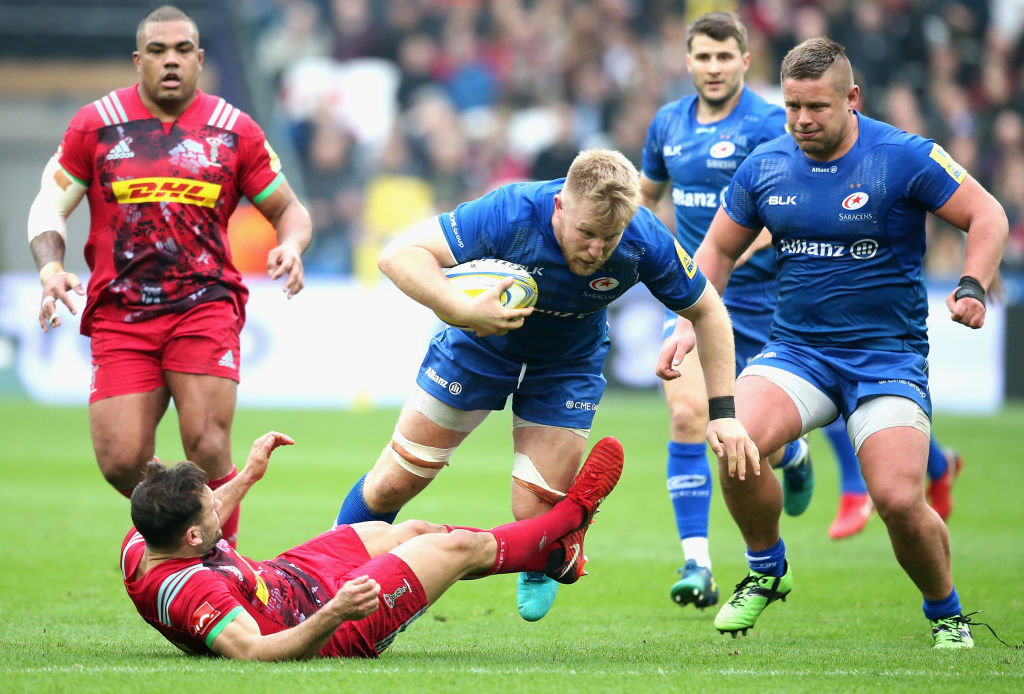
Often the only uncapped member of the Saracens team; just as often the best player on the field. In a sporting age where everything is supposed to have its price, the all-purpose loose forward refuses to put pound signs on loyalty. Great sides are built around people like Wray.
There are always hard-luck stories in any team selection. Michael Young, the scrum-half now in his second spell with Newcastle after tours of duty with Leicester and Bath, is in his 13th season as a Premiership professional and might easily have secured the No.9 spot. Likewise Craig Gillies, a lineout operator par excellence in multiple club settings who played almost 300 games for Worcester in the second half of an unusually long career and ruled the skies in most of them.
We could also make a back row case for two London Irish forwards, the stay-at-home Declan Danaher and the peripatetic Matt Garvey, and even for Arthur Joly, a tighthead prop from northern France who joined London Welsh from Bourgoin on their unexpected arrival in the Premiership in 2012. Flying in the face of every prediction under the sun, the no-hopers looked like staying up until being docked precious points for fielding an ineligible player. Joly’s scrummaging, together with that of his one-cap countryman Franck Montanella, was the cornerstone of that phenomenal effort, and he deserved the Legion d’honneur. Rather like Steenson, he was overlooked.

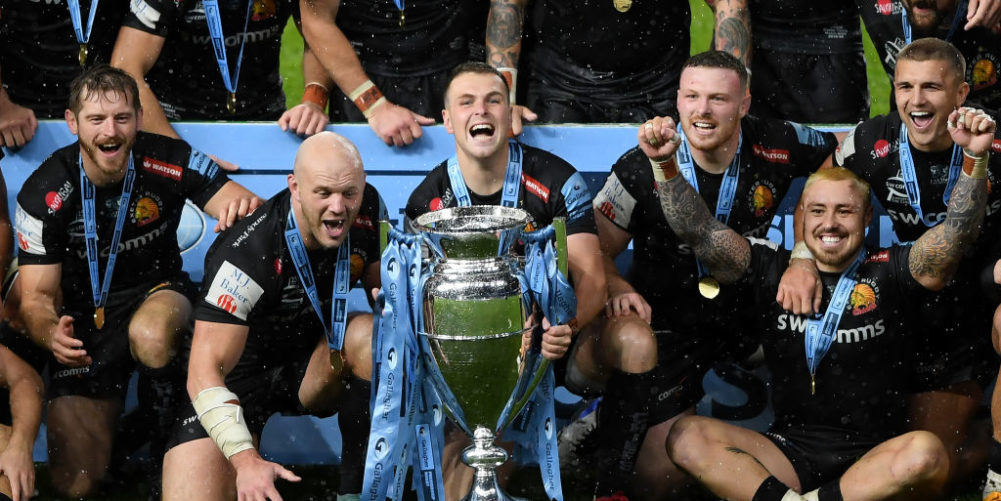






















Pingback: วิเคราะห์บอลวันนี้